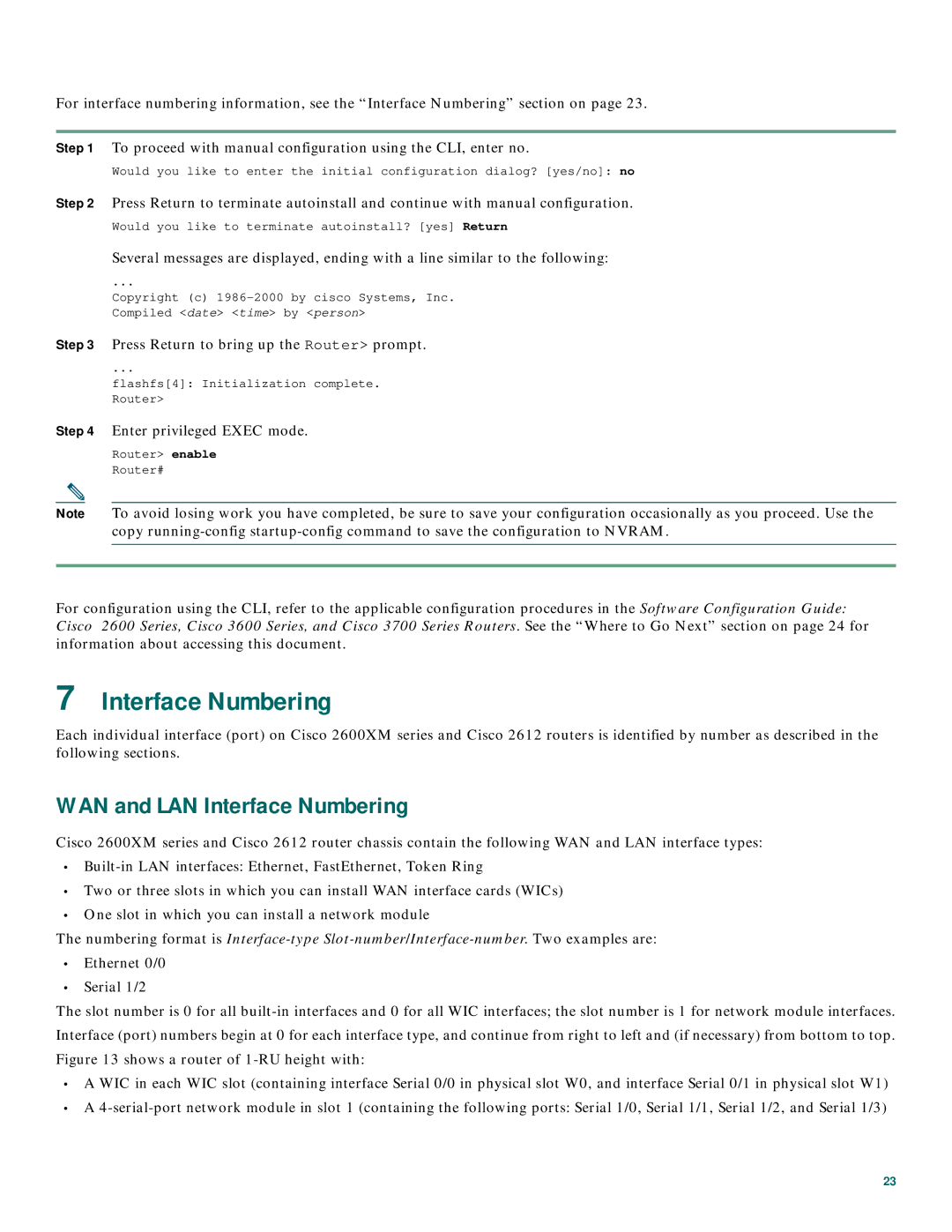
For interface numbering information, see the “Interface Numbering” section on page 23.
Step 1 To proceed with manual configuration using the CLI, enter no.
Would you like to enter the initial configuration dialog? [yes/no]: no
Step 2 Press Return to terminate autoinstall and continue with manual configuration.
Would you like to terminate autoinstall? [yes] Return
Several messages are displayed, ending with a line similar to the following:
...
Copyright (c)
Compiled <date> <time> by <person>
Step 3 Press Return to bring up the Router> prompt.
...
flashfs[4]: Initialization complete. Router>
Step 4 Enter privileged EXEC mode.
Router> enable
Router#
Note To avoid losing work you have completed, be sure to save your configuration occasionally as you proceed. Use the copy
For configuration using the CLI, refer to the applicable configuration procedures in the Software Configuration Guide: Cisco 2600 Series, Cisco 3600 Series, and Cisco 3700 Series Routers. See the “Where to Go Next” section on page 24 for information about accessing this document.
7Interface Numbering
Each individual interface (port) on Cisco 2600XM series and Cisco 2612 routers is identified by number as described in the following sections.
WAN and LAN Interface Numbering
Cisco 2600XM series and Cisco 2612 router chassis contain the following WAN and LAN interface types:
•
•Two or three slots in which you can install WAN interface cards (WICs)
•One slot in which you can install a network module
The numbering format is
•Ethernet 0/0
•Serial 1/2
The slot number is 0 for all
•A WIC in each WIC slot (containing interface Serial 0/0 in physical slot W0, and interface Serial 0/1 in physical slot W1)
•A
23
